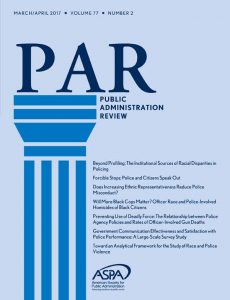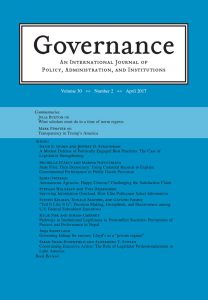I think I can(‘t), I think I can(‘t): a Mildred Blaxter New Writer’s Prize winner reflects on her identity as a new career researcher

Each year the Editorial Board of Sociology of Health and Illness offers a prize for “the best article published in the journal by an early career researcher”. In September, I received an email announcing that my article Engaging conceptions of identity in a context of medical pluralism: explaining treatment choices for everyday illness in Niger had been selected as the 2017 winner. Honored and surprised to receive this message, I laughed out loud at the absurdity of how drastically my feeling of legitimacy can change. Would the editorial board have still have selected this article for this prize if they knew that one year earlier, I had spent four days crying in bed feeling hopeless about my ability to address the concerns of the reviewers and had almost decided not to re-submit?
I originally sent in this article, based on research from my 2013 PhD in medical anthropology from the University of South Florida, at the beginning of 2015. It took over two years of struggle, review, feedback, encouragement, soul searching, and feeling incompetent and incapable, before it was finally published. Although this was my first solo-authored paper, I still depended on my colleagues and friends to help me structure my ideas and present my thoughts clearly. One of these friends, a PhD student who is younger than me but has much more publishing experience than I do, provided particularly valuable help. At the point where I was about to give up on addressing the comments of the reviewers, he went through my entire paper, made his own comments and delivered these to me in my living room along with a big serving of “you can do it.”
Writing up research can be a lonely task. As students, we have our thesis advisors and professors to turn to, but as early career researchers, we must create our own networks of support. These networks can help us fight against internal doubts of legitimacy and help us see beyond our own internal struggles. Connecting with other researchers can also allow us to see that we are not alone in this rollercoaster of a career where one minute we are unable to type up coherent ideas, and the next we are winning a prize! The friend who helped me understand how to revise my article is now going through his own writing struggles and self-doubt. When you have been at this for a while, I think you must begin to realize that this how it works, and that we need to accept experiencing both confidence and doubt in what we do. Receiving recognition for our work, whether through a prize, acceptance for publication, or positive feedback, helps us to realize that despite these struggles, what we have to say is valuable.
My article that was awarded the Mildred Blaxter New Writer’s Prize describes how individuals living in rural Niger explain their choice of medication through conceptions of identity. In the village where I conducted my research, many different medical sources and systems were used. While some scholars describe these as “competing” systems, in this context, they were rarely exclusive. People went back and forth between systems, often using more than one at a time. In this article, I show that people explained these choices as addressing the contradictory and complementary aspects of their identities.
Identity is complex in any context. I am very grateful to the Editorial Board of Sociology of Health and Illness for providing me with this encouraging award that, at least briefly, has fed my self-identity as a legitimate researcher. I will remember this encouragement and try to hold onto this feeling as I continue along the path toward the inevitable challenges ahead.
Kelley Sams, MPH, PhD, is a postdoctoral medical anthropology researcher at the Norbert Elias Center in Marseille, France. Her work explores the circulation of medication and public health initiatives in sub-Saharan Africa. Her current research focuses on Chinese artemisinin-based malaria medication as a part of the collective investigation ‘The Political Life of Commodities’, a project funded by the French National Research Agency (ANR).
Announcement of Sociology of Health and Illness Mildred Blaxter New Writer Prize Winner 2017
The Editorial Board of Sociology of Health and Illness offers an annual prize for the best article published by a novice writer. When the Journal was first conceived, in 1979, one of its stated aims was the encouragement of new authors and less-experienced medical sociologists. The prize furthers this aim, and is made possible through the generosity of the Foundation for the Sociology of Health and Illness. The Judges are a small subcommittee of the Editorial Board. The prize is awarded, where possible, at the BSA Medical Sociology conference each year. The Editorial Board would like to offer their congratulations to Kelley Sams, Norbert Elias Centre, France, who is the winner of the prize for 2017 for Engaging Conceptions of identity in a context of medical pluralism: explaining treatment choices for everyday illness in Niger (39, 7, 1100–1116).







